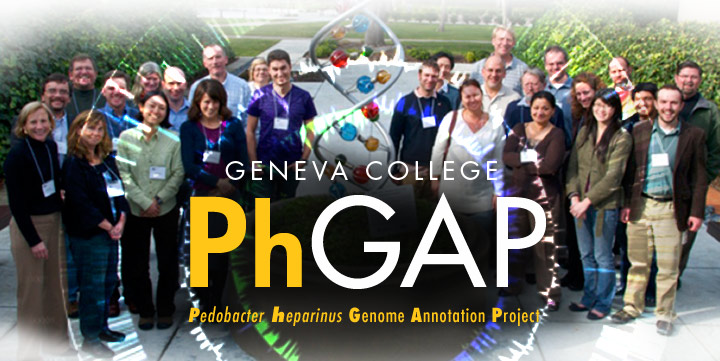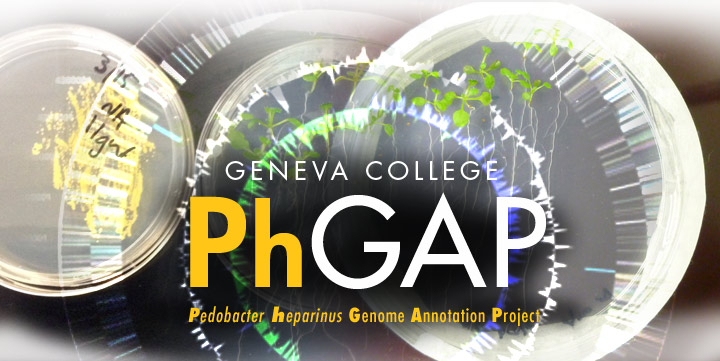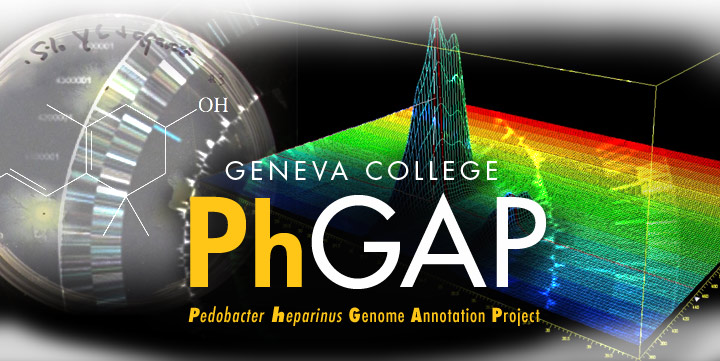


Pedobacter heparinus Genome Annotation Project (PhGAP)
Pedobacter heparinus (P. heparinus), is a bacterium that can use carbohydrates as its sole nutrient source. In nature, it is a soil-dwelling microbe that has been shown to grow in close proximity to plants in dry areas. Another interesting characteristic of this organism is its ability to produce a yellow pigment in the presence of light. The pigment, a carotenoid, is most likely produced to protect the cell from oxidation.

The Joint Genome Institute (JGI) of the Department of Energy sequenced the entire genome of P. heparinus in 2009. In 2010 we “adopted” the sequenced genome of this organism. The adoption essentially means that we aim to identify and characterize genes of this interesting bacterium. We use bioinformatics to annotate its genome and laboratory experiments for functional genomics characterization. The aim of PhGAP is to provide training experiences for students and also data for the scientific community.

Saturday September 12, 2015
At Geneva College | 3200 College Avenue Beaver Falls, PA 15010